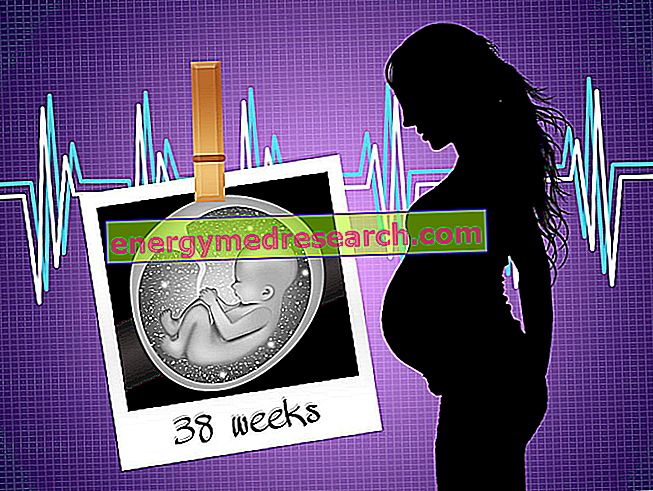Iron deficiency anemia Iron deficiency anemia is a disease caused by iron deficiency in the body, which occurs very often in pregnancy. If one complains of tiredness, tachycardia, decreased concentration and pallor, most likely one is faced with a state of anemia, whose symptoms are determined, beyond the iron deficiency in itself, by the poor oxygenation of the tissues
Category pregnancy
Definition As the word itself anticipates, gestational hypertension consists of an increase in arterial pressure that occurs during pregnancy; in general, the increase in blood pressure begins after the 20th week of gestation and disappears after delivery. In the first months of pregnancy there is an opposite event (physiological reduction of blood pressure) Causes A single cause implicated in the manifestation of gravidic hypertension has not yet been identified with certainty; however, the association of several factors could heavily affect the onset of the disorder: a low-calorie diet low in
A study entitled "Effects of maternal chocolate intake on fetal heart rate" examined the reactions of the unborn child to the intake of this food. By means of computerized cardiotocography it was possible to accurately observe changes in the fetal heart rate. The outcome of the experiment showed that the maternal assumption of dark chocolate with a high concentration of cocoa (80%) has repercussions increasing fetal reactivity, while that of low concentration (30%) has not proved equally significant
" Cravings " are the sudden desire to eat a particular food during pregnancy . First of all, it must be said that conception initiates a hormonal change that predisposes the organism to childbirth and involves, among its various effects, also the alteration of taste and smell. Furthermore, these variations can increase the appetite, generally, after the 4th-5th month
In some rare cases, pregnancy can lead to heart disease, specifically myocardium, called peripartum cardiomyopathy . By cardiomyopathy is meant any anatomical modification of the heart muscle, which has a negative effect on the functional level, with sometimes very serious consequences on the functioning of the heart
The probability of transmission of toxoplasmosis to the fetus varies according to the gestational period in which the mother has contracted the infection: the risk is low at the beginning of pregnancy and increases with the progress of time. On the contrary, the severity of the damage reported by the child is greater, as soon as the maternal-fetal transmission occurs
Toxoplasmosis is a significant problem if it is contracted for the first time during pregnancy . Toxoplasma gondii can reach the fetus through the placenta and cause damage to the nervous system and eyes. In some cases, the infection results in preterm birth or intrauterine death. If the future mother had already come into contact with Toxoplasma gondii before pregnancy, however, it is not susceptible (since the people who contract the disease are generally immune for the rest of their lives) and there are no risks to the fetus resulting from infections later
For pregnant women, to reduce the risk of listeriosis , the adoption of some simple behavioral rules is recommended. - Avoid consuming unpasteurized milk. - Do not eat soft cheeses (eg brie, gorgonzola and camembert) and dairy products derived from raw milk. - Avoid eating raw, raw or undercooked meat (eg sausages such as ham, salami and sausages), smoked or raw fish (sushi and sashimi) and seafood
That of the squat is an absolutely natural position, especially for children in the first three years of life. On the other hand, adults who suffer from limited joint movement (hip, ankles, knees) or do not enjoy good muscle elasticity are unlikely to find themselves at ease in this position. However, as we will see below, the posture of the squat is continuously used by humans for the most disparate reasons
A pregnancy that proceeds without problems, in general, does not represent a contraindication to air travel if planned within 36 weeks. If the flight is scheduled during the 9th month of gestation, instead, the doctor's approval is necessary, taking into consideration that the rules may vary depending on the airline; in some cases, a certificate issued by the gynecologist that certifies the gestational age and the expected date of birth is required
Nutrition of pregnant women The awareness of the fundamental role played by nutrition in pregnancy clearly emerges from the numerous suggestions intended for pregnant women who, influenced by tradition, religion and scientific thought, have come down to the present day. Fortunately, science has now eradicated many of these myths, such as the one that compared the fetus to a sort of creature capable of absorbing large amounts of nutrients from the mother, forcing it, in fact, to eat for two











